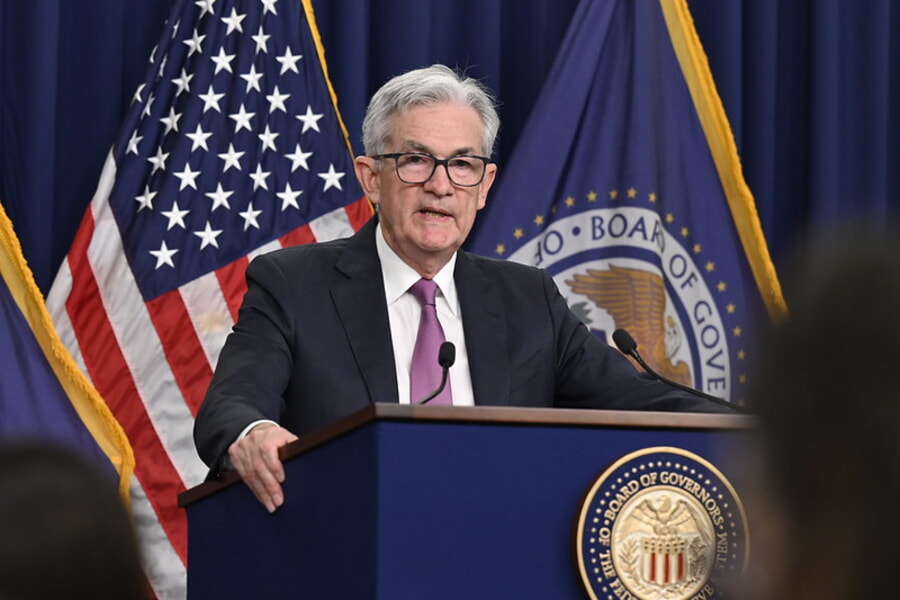Today’s Headlines and Commentary
Lawfare’s daily roundup of national security news and opinion.

Subscribe to receive this newsletter directly to your inbox.
The Biden administration issued a second round of sanctions against Russia that target two major Russian banks, both of Russian President Vladimir Putin’s adult daughters and the wife and daughter of Russian Foreign Minister Sergey Lavrov, reports the Wall Street Journal. According to officials, Russia’s Sberbank is the country’s largest bank and Alfa Bank serves as one of Russia’s top private lenders. The sanctions against Putin’s two daughters—Mariya Putina and Katerina Tikhonova—and Lavrov’s family members are part of a larger strategy to financially target the members of Putin’s inner circle in retaliation for the Russian invasion of Ukraine, according to CNN.
U.S. Secretary of State Antony Blinken will meet with the Group of 7 and NATO allies in Brussels to discuss punitive actions against Russia for its invasion of Ukraine, writes NPR. While in Brussels, Blinken will also oversee the U.S. investigation into alleged war crimes committed by Russian forces against Ukrainian civilians. Blinken will reportedly work to ensure that evidence of the alleged war crimes such as photographs of mass graves and civilian executions in Bucha are collected for the U.S. to use against Russia in potential future trials.
Twitter announced new content moderation policies that will reportedly work to minimize the amplification of Russian government accounts and will also ban some tweets that contain images of prisoners of war in Ukraine, according to the New York Times. Twitter’s head of site integrity Yoel Roth reported that the new policy is intended to restrict government accounts from countries such as Russia that “limit access to the open internet while they’re engaged in armed conflict.” As a result of the updated policy, Russia’s government accounts will no longer be found on Twitter’s home timeline, explore page or search results. While the new policies in practice currently only apply to Russia, Roth reported that they would apply to any country engaged in war that placed restrictions on the internet.
El Salvador’s Congress approved a measure to punish any individual that relays information about gangs in the country, reports the New York Times. While the measure is intended to criminalize the sharing of gang messages, critics fear that the vagueness of the law will allow for it to be used to arrest virtually anyone—including journalists— who speak or write about gangs in both public and private communications. In addition to censorship, observers also fear that the new law will lead to further mass detentions in the country. Last week El Salvador declared a state of emergency in response to an uptick in gang violence in the streets. The state of emergency changed the country’s penal code to allow El Salvadoran law enforcement to detain civilians without evidence for suspected gang involvement. Since the state of emergency was declared, 6,000 people in the country have been detained and because of the passage of the new measure experts suspect that law enforcement could potentially detain thousands more.
The Red Cross is warning that a quarter of Africa’s population is facing a food security crisis, writes the Wall Street Journal. Approximately 346 million people are reportedly suffering through a food security crisis that is exacerbated by severe drought, ongoing wars and an increase in global food prices because of the Russian invasion of Ukraine.
The U.S., U.K. and Australia are planning to join forces to develop hypersonic missile technology and electronic warfare capabilities, according to Politico. The agreement between the three governments is reportedly intended to strengthen the security partnership between each country while also issuing a warning to Russia and China, both of which have recently demonstrated their own hypersonic missile capabilities. In a joint statement, President Biden, U.K. Prime Minister Boris Johnson and Australian Prime Minister Scott Morrison said, “We reaffirmed our commitment to AUKUS and to a free and open Indo-Pacific. In light of Russia’s unprovoked, unjustified, and unlawful invasion of Ukraine, we reiterated our unwavering commitment to an international system that respects human rights, the rule of law and the peaceful resolution of disputes free from coercion.”
The House select committee investigating the Jan. 6 attack on the U.S. Capitol gained access to 101 emails that former Trump lawyer John Eastman had previously attempted to keep secret, reports CNN. Eastman’s emails were reportedly exchanged between Jan. 4 and Jan. 7, 2021, and were released to the select committee following a ruling by Judge David Carter determining that Eastman's claims of attorney client privilege were invalid. One email reportedly contains a memorandum for Trump lawyer Rudy Giuliani that outlines plans for former Vice President Pence to reject certain states’ electors during the Jan. 6 certification process. In another email, a colleague of Eastman’s reportedly contains a “plan of action” for after the attack on the Capitol.
Ivanka Trump—former President Trump’s daughter and senior advisor—appeared before the House select committee investigating the Jan. 6 attack on the U.S. Capitol, writes the New York Times. Ivanka Trump testified for approximately eight hours and reportedly did not invoke any privilege such as executive privilege or the Fifth Amendment to avoid answering the select committee’s questions. Trump joins her husband—Jared Kushner—as one of the highest-ranking Trump White House officials to testify before the panel.
The Biden administration announced that it will extend the pause on federal student loan payments until Aug. 31, according to CBS. The pause was originally set to expire on May 1 and likely would have been the first time some of the 37 million student loan borrowers in the U.S. would have to begin making payments to the government since the pause began in 2020. In a statement announcing the extension, Biden said that “[i]f loan payments were to resume on schedule in May, analysis of recent data from the Federal Reserve suggests that millions of student loan borrowers would face significant economic hardship, and delinquencies and defaults could threaten Americans' financial stability.”
ICYMI: Yesterday on Lawfare
Jen Patja Howell shared an episode of the Lawfare Podcast in which Alvaro Marañon sat down with Paul Massaro to discuss a national security memorandum issued by President Biden to establish the “Fight Against Corruption” as a core national security interest for the United States.
Emily Jin explained why the U.S. should keep a watchful eye on China’s Cross-Border Interbank Payment System.
Stewart Baker shared an episode of the Cyberlaw Podcast in which he was joined by Nate Jones, Sultan Megi and Mauri Shenk to discuss cryptocurrency regulation, cybersecurity worries in the maritime sector, the decay of Russia's site blocking system and more!
Email the Roundup Team noteworthy law and security-related articles to include, and follow us on Twitter and Facebook for additional commentary on these issues. Sign up to receive Lawfare in your inbox. Check out relevant job openings on our Job Board.




